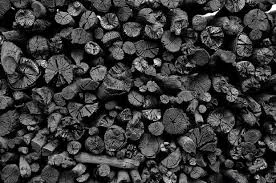Here's the story of how I moved from dark chocolate to even darker materials - biochar
Back in 1995 the Prince of Wales delivered the Lady Eve Balfour Memorial Lecture on the theme of ‘Counting the Cost of Industrial Agriculture.’ He argued that if you incorporate the externalised costs of non-organic farming, such as nitrate pollution, gender-bending herbicides in the water supply, biodiversity loss and the climate change cost of greenhouse gases (from nitrous oxides and soil carbon emissions) the real cost of non-organic food would nearly double.
A year later Dan Morrell of Future Forests (later to become the Carbon Neutral Company) encouraged me to go carbon neutral with Whole Earth’s organic wholegrain cornflakes. The whole life cycle carbon footprint of the cornflakes was calculated by independent experts who found that it was surprisingly low: because organic farmers increase rather than reduce the stored carbon in soil, this offset much of the other carbon cost of the cornflakes.
By now it was pretty obvious to me that the sooner we could get policymakers to force us to include the cost of greenhouse gas emissions in the cost of food the sooner we would all be eating organic food, because it would usually be cheaper.
Roll on 14 years to 2009 – the climate negotiations in Copenhagen have soil carbon and forest carbon on the agenda. Lord Nicholas Stern, former chief economist at the Bank of England and author of the Stern Review that put the cost of every tonne of carbon we emit today at £140 for future generations (currently carbon markets value a tonne of carbon at £11) has said that any future climate agreement has to be ‘universal and equitable.’ In other words, no cheating, no get-outs, no let-outs, no sacred cows. That means that all countries and all activities, including agriculture, forestry and transportation must be included in the new climate regime that begins in 2012. Hitherto only Europe has complied and then only for the heavy industries that emit half of our greenhouse gases – farming and transport have been excluded. But no longer.
2 years ago I invited Dan Morrell to join me in a new venture: Carbon Gold. What do we do? For a start, we believe biofuels are part of the problem, not part of the solution. Every bit of biomass carbon is too precious to waste by burning it. At Carbon Gold we aim to capture woody material such as waste biomass, forestry co-products and tree prunings and convert it into charcoal. But we call it ‘biochar.’ Why? Because we don’t burn it, thereby putting the carbon back into the atmosphere as CO2. Once we’ve made the biochar we blend it with fertility-building clays and composts and add it to the soil. Biochar is a wonderful soil conditioner: it improves drainage but also prevents soil drying out; it reduces the leaching of nutrients from soil by rainfall; it provides 5-Star accommodation for beneficial soil fungi and bacteria, increasing their populations; it improves soil structure and aggregation; it helps suppress soil-borne diseases that are harmful to plants and biochar helps raise the pH of acid soils. Universities around the world are gearing up to do biochar research that will more precisely quantify its benefits. These vary depending on soil, climate and the amount of biochar applied to soil.
Meanwhile at Carbon Gold we are busily making biochar and selling the carbon credits from avoided emissions as well as selling the biochar as a soil improver. In Belize cacao farmers produce biochar that is blended with compost and used by banana growers to reduce their dependence on fungicides and irrigation. In East Sussex we are regenerating ancient chestnut coppice woodland and producing organic biochar which we use to produce “Gro-Char” peat-free compost which will be sold through garden centres. Garden Organic members will be trialling it in various applications during the 2010 season. In Mozambique we are partnering with a conservation organisation to help small farmers produce biochar, encouraging them to protect their forests and improve their soil fertility. On my own smallholding near Hastings there is a magnificent peach tree dripping with perfect fruit that had its base covered with biochar last February. The ones that didn’t get biochar haven’t done so well, peach leaf curl was worse for them. My biochar potatoes still show no signs of blight, while everyone else’s have suffered.
I feel like I’m still in the food business (and I have made a delicious risotto nero charbonara that delighted dinner guests recently), I’ve just moved my focus towards food security.











